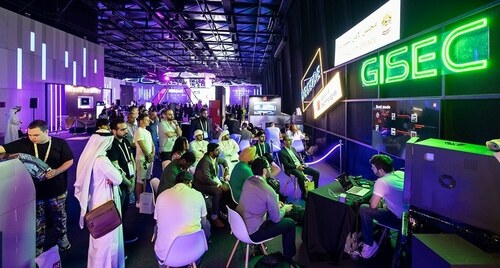Pakistani Startups Shine at GISEC Dubai
All seven Pakistani technology startups that participated in this year’s Gulf Information Security Expo and Conference (GISEC) achieved semi-finalist status in the event’s pitch competition. This participation occurred against the backdrop of increased cyber activity between India and Pakistan during recent periods of tension.
The group of emerging businesses received sponsorship from Ignite – National Technology Fund, an initiative of Pakistan’s Ministry of IT & Telecom.
Although none of the startups reached the final round, the expo provided valuable opportunities for them.
Dubai Chamber of Digital Economy Supports Numerous Startups
The Dubai Chamber of Digital Economy has provided backing to 127 startups during the first quarter of the year.
“We have finalized an agreement with a Gulf-based IT distributor that operates in Bahrain, the UAE, Ireland, and New Zealand,” stated Waqar Ahmed, CEO of Securitanium.
“We will be joining their vendor list for email security solutions and aim to collaborate with them to offer our product to their clientele in the future.”
Ahmed highlighted that “Over 80% of cyber intrusions originate from phishing emails, despite the presence of email gateway protection measures.”
He added, “Existing systems often fail to analyze email content effectively. Our AI-driven solution examines both IP addresses and domains, while also scrutinizing the content for phishing indicators and subsequently removing such emails.”
Participants emphasized that artificial intelligence (AI) is crucial for advancing online security.
“AI is a dominant topic; it is everywhere, in every discussion and every piece of information you come across,” noted Muhammad Ali Inayat, founder of ComplianceMachine.ai.
Inayat, who also serves as CEO of Kinverg, ComplianceMachine.ai’s parent company with an established presence in the Gulf region, believes it is an opportune time for the cybersecurity sector in the Gulf, especially in the UAE and Saudi Arabia, following the enactment of the Personal Data Protection Act.
He noted that data protection has gained significant traction globally over the past decade, making compliance a complex challenge for international businesses.
“We aim to cut compliance expenses by 50% by equipping companies with ready-made controls aligned with diverse regulatory frameworks.”
The Pakistani startups showcased a variety of security solutions. Thingzeye presented its network security service designed for smart home and office devices, including medical equipment.
“Our Smart Home Firewall protects the smart devices used by children at home,” explained CEO Ghalib Asadullah Shah. “It offers parental control features and analyzes children’s social behavior online. It also profiles all devices connected to your home network.”
“It identifies and gives insights into all devices linked to your home network,” he added.
Protection is also extended to personal health data devices such as smartwatches and heart rate monitors.
Shah conveyed that GISEC reinforced his confidence in his company’s offerings.
“The experience has been invaluable for us,” he said.
“I gained exposure and confidence from competing on an international stage. We realized our potential and learned not to be intimidated by international competition.”
This wealth of talent motivated “Ignite – National Technology Fund, a Ministry of IT & Telecom initiative,” to facilitate the participation of Pakistani startups at the event. Ignite focuses on technologies related to the fourth industrial revolution and ecosystem development projects to achieve its goal of establishing a knowledge-driven economy in Pakistan, according to the organization’s website. Its incubator network supports startups, and it offers grants for innovative tech projects.
“GISEC is our partner for the Digital Pakistan Cyber Security Hackathon, and we anticipate a lasting collaboration,” commented Adeel Aijaz Shaikh, Ignite’s CEO, with plans to increase participation in future events.
Inayat and Shah both encouraged Pakistani youth to join this growing industry.
“Pakistan has significant potential in cybersecurity,” said Inayat. “Notably, the world’s first virus originated in Lahore. This field is one we know well.”
Shah supported his colleague’s sentiments.
“If you possess an interesting and innovative idea, present it [at GISEC], and you will find considerable interest in your product,” he advised.
Khalid Yacoob, an event attendee, expressed his surprise at the presence of a Pakistani pavilion.
“Being originally from Pakistan, I am delighted to see Pakistan’s involvement in the cybersecurity sector,” said the business development director at IT consultancy HiveMind Global.
GISEC took place from May 6 to 8, attracting around 750 cybersecurity firms and 25,000 visitors from more than 160 countries. The event featured hackathons and panel discussions.
The UAE Cybersecurity Council, host of GISEC Global, earned 11 Guinness World Records during the event, including “most nationalities in a simulated Dark Web intelligence training session” and “largest ransomware awareness session.”



Comments (0)
No comments yet. Be the first to comment!
Leave a Comment